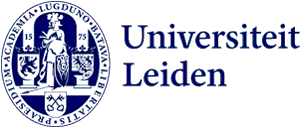
Kamaran Palani: ‘Completing my PhD at Leiden University is a dream of me and my deceased father’
Starting your PhD during two major crisis in your country; it happened to Kamaran Palani, PhD student at the Dual PhD Centre and ISGA who lives in Erbil, the capital of the Kurdistan Region of Iraq. In spite of the difficulties in his county, Palani (34) stuck to his PhD-research about the fluidity and dynamics of Kurdistan as being a de facto statehood. He will defend his thesis on Wedsnesday July 7th. ‘This PhD has been an integral part of my whole work and dream. This have given me strength and continuity during this difficult period.’

‘When I was admitted as a PhD candidate at Leiden University in summer 2016, Kurdistan was going through two major crises: first, it was at the midst of a war against the so-called Islamic State, which they were fighting less than an hour away from where I lived; second, in this period Kurdistan faced an unprecedented financial crisis, resulted in reducing the salary of public employees, including university lecturers and staff by 65 percent. In this period, we were all overwhelmed by feelings of insecurity and uncertainty. Most of my friends, including my wife, believed that this was the worst time to start my PhD’, Palani says. ‘But I was determined and very lucky that I was admitted to the PhD-programme at the Dual PhD Centre that has started a cooperation with Salahaddin University in Erbil.’
Why did you want to describe the dynamics and nature of Iraqi Kurdistan’s de facto statehood?
Palani: ‘The studies which have incorporated the case of Iraqi Kurdistan into de facto states theories in international relations do not develop a new explanatory and analytical framework based on empirical insights that can explain the dynamics and type of the de facto state in Iraqi Kurdistan. In my view, this fragmented literature on Kurdistan’s political existence has made it difficult to properly examine the nature of the entity. If the factors that influence Kurdistan’s entity, which generate fluidity, are not taken into account, the analysis of the development of Kurdistan’s de facto statehood becomes confined to a specific time period, factor or case. Therefore, that analysis falls short of systematic analytical explanations and fails to comprehend the various drivers that determine an unstable transition towards international recognition.’

How did you approach the research and come to your conclusions?
Palani: ‘My manuscript contained articles published in academic journals. We developed robust research methodology for these articles, and over the years I observed the political and security developments in the region. I also conducted interviews with a number of high profile politicians, officials and policy makers from the region to provide unique insights, among others the three main factors at play in the fluidity of the de facto state of Iraqi Kurdistan: the balance of power between Kurdistan and the Iraqi government; the level and form of internal fragmentation; and the change of strategies to gain international support and recognition.
Is there one main conclusion to take?
Palani: ‘The processes of fluidity that Kurdistan has gone through since 1991 provide key insights into the importance of the internal organisation of de facto states in their struggle for international recognition. Internal dynamics (including but not limited to changing systems of government, internal democratisation, security forces, institutions, domestic legitimacy and political party rivalry) play a key role in explaining de facto states’ non-linear progression towards international recognition. Thus, it is worthwhile to further study the extent to which fluidity is a key characteristic of de facto statehood in other parts of the world outside the case of Iraqi Kurdistan.’
How did you experience being a student at the Dual PhD centre?
Palani: ‘My experience as a PhD student at the Dual PhD Centre was simply great. It helped me a lot to balance between practice and theory, importantly, to transform and locate my fieldwork and observation in Iraqi Kurdistan into broader intellectual and theoretical discussions. The Centre provided me with critical support and help from developing a feasible research plan to finalizing the manuscript and preparing for the defence.’
What are your expectations about the defence this Wednesday?
Palani: ‘My defence will be in-person in Leiden, which makes me extremely happy and excited. This means a lot to me. My dad was illiterate, and never had an opportunity to study, but was the biggest supporter to my education. Completing my PhD at an internationally respected university such as Leiden was his dream as much as mine. Unfortunately, he passed away on February 25 this year. But I am sure he will see it.’
You can follow the defence here via this livestream.
